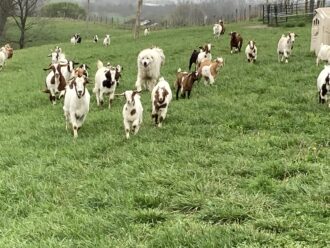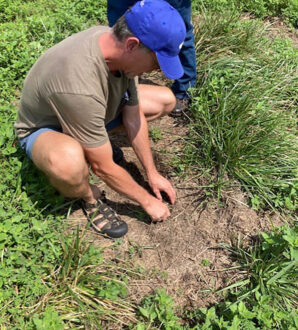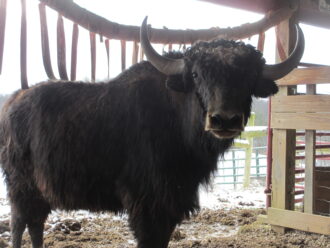Soil Solarization in High Tunnels: A sustainable method to control diseases, weeds, and pests
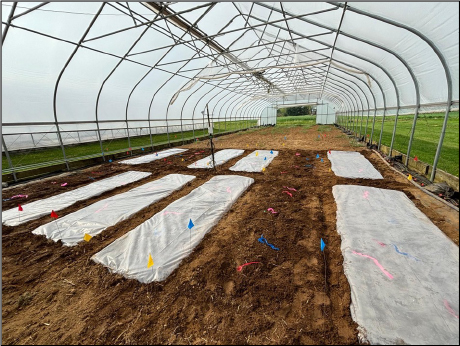
Soil solarization – using sunlight to kills pests, diseases, and weeds by covering the soil with plastic – is common in open crop fields in warm climates. Researchers with the University of Kentucky and University of Tennessee are exploring how well the technique works in high tunnels in more moderate transitional climate zones.
Temperatures are much warmer in high tunnels compared to outside temperatures, which gives farmers a production advantage. However, with most high tunnels being permanent structures, continuously growing crops in non-rotated soil can intensify pathogen, pest, and weed population densities.
Through a $383,000 3-year Research and Education Grant, researchers are trying to pinpoint the optimal timing and approach for soil solarization in high tunnels in Kentucky and Tennessee by comparing the efficacy of solarizing sealed tunnels with individual beds within open tunnels. The goal is to determine if solarization is effective against the area’s most problematic pathogens, pests, and weed seeds, sustainable to implement, and adoptable at the farm level. Researchers also will evaluate the economic feasibility of solarization.
During the research, five soil pathogens will be screened: lettuce drop, Fusarium crown and foot rot, Southern blight, Pythium root rot and damping off, and Rhizoctonia crown and root rot. Additionally dominant weed species, such as crabgrass and bermudgrass, will be monitored during treatments, as well as such insect pests as aphid, white flies, and thrips.
To create a baseline, researchers conducted a grower survey across Kentucky and Tennessee to assess production challenges when growing vegetables in high tunnels, and to gauge how many were familiar with soil solarization and how many used the technique in their high tunnels.
Survey results found that the top soilborne pathogen growers faced was sclerotinia, the most common insect pests were aphids and whiteflies, and the most problematic weeds were crabgrass, chickweed, and pigweed. The results found that only a small percentage of farmers were using soil solarization or knew what the technique was. However, a large percentage of respondents were willing to try the strategy as a more environmentally friendly and cheaper to manage weeds, pests, diseases and /or nematodes in high tunnels.
The research is expected to be completed March of 2026.
State Contacts
SARE State Coordinators are vital for expanding sustainable agriculture training for Extension, NRCS, and other agricultural professionals, who will then help producers transition to a more sustainable agriculture.

Brett Wolff
SARE IN KENTUCKY
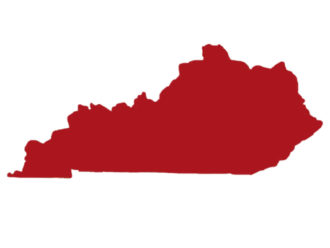
million
The Kentucky SARE program is a collaboration between the University of Kentucky and Kentucky State University. Kentucky SARE partners with researchers, extension faculty, producers, and community organizers to research and implement the best science-based practices available in all aspect's of Kentucky's agricultural system.
Recent News From Kentucky
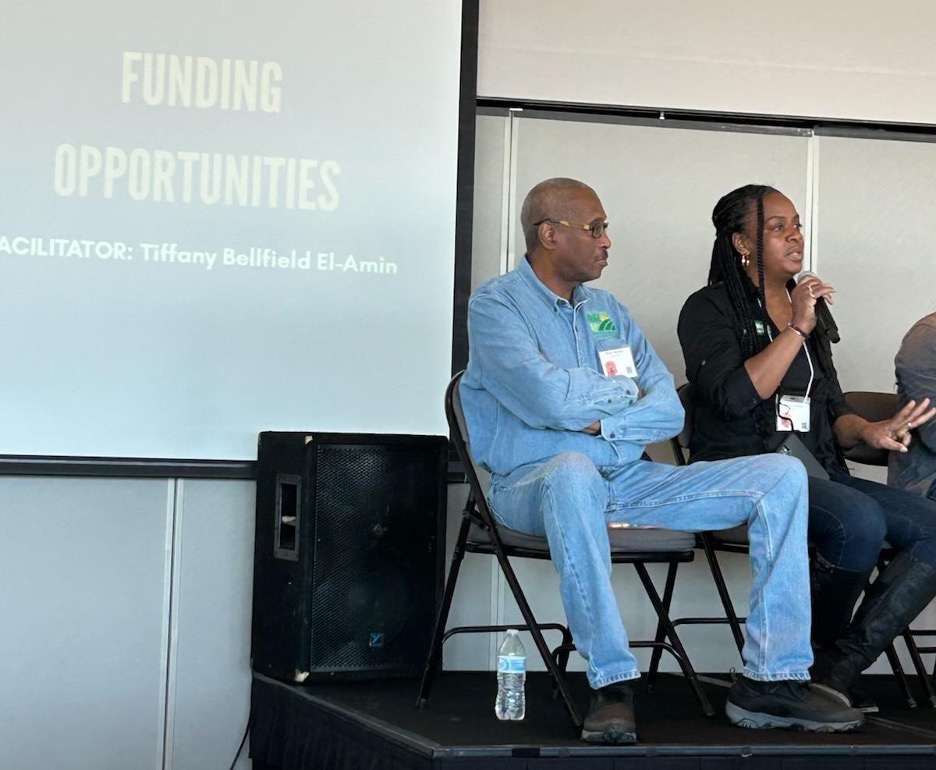 Sustainable Communities
Sustainable Communities
Urban Agriculture Initiatives in Kentucky: Empowering Communities and Driving Research
LOUISVILLE, Kentucky Tiffany Bellfield El-Amin, the founder and director of the Kentucky Black Farmers Association (KBFA), leads the Urban BIPOC Farms Mentoring Program through a Southern Sustainable Agriculture Research and Education (SSARE) On-Farm Research grant. The grant involves three urban farmers in different parts of Kentucky, each with unique soil conditions and farming practices. The […]


